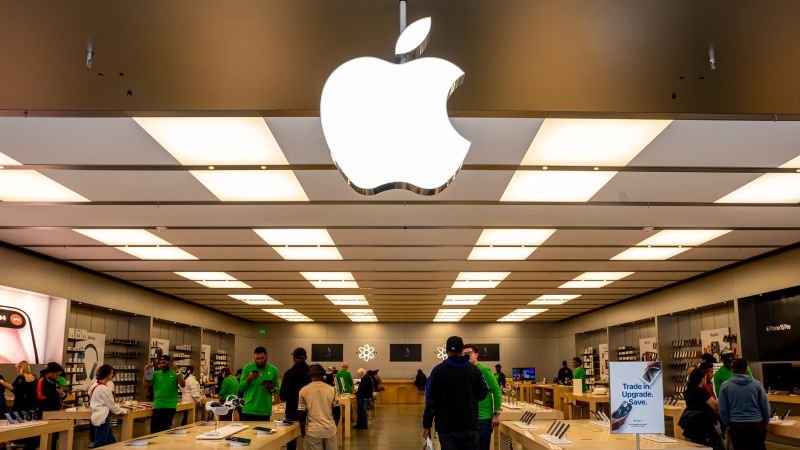Apple Store workers in Towson, Maryland, who are represented by the International Association of Machinists and Aerospace Workers Coalition of Organized Retail Employees (IAM CORE), recently made history by becoming the first of the tech giant’s retail employees to unionize. Employed at the store in Towson, a suburb of Baltimore, the workers have been in contract negotiations with Apple management since last year due to a variety of issues, including unpredictable scheduling practices and wages that do not align with the area’s cost of living. The vote to authorize a strike was a clear show of frustration among the workers regarding unresolved workplace issues.
The union at the Towson store released a statement emphasizing their commitment to advocating for the rights and well-being of workers in the face of challenges. They believe that the strike sanction vote is a crucial step in demonstrating solidarity and sending a clear message to Apple. In response, Apple stated that they would engage with the union representing their team in Towson respectfully and in good faith. The tech giant also emphasized their commitment to providing an excellent experience for their retail team members and ensuring they receive industry-leading compensation and exceptional benefits.
Another vote for a store to unionize, this time at the Mall at Short Hills store in New Jersey, did not succeed. Employees at this store voted against unionizing, with the union, known as the Communications Workers of America, claiming that Apple engaged in illegal union-busting activities leading to the defeat. The company allegedly used anti-union tactics to influence the results of the election. While the union at the Towson store has not disclosed a strike date, the situation at the Mall at Short Hills store highlights ongoing labor unrest within Apple’s retail stores.
Labor unrest at Apple is part of a larger wave of organizing activities across influential companies in the United States, including Starbucks and Amazon. This wave of labor activity has been fueled by growing frustration among workers as well as a contagion effect, where one group of workers standing up inspires others. As Apple continues to face regulatory scrutiny, sluggish sales in certain markets, and other issues, such as the fallout from an iPad advertisement, labor conditions and inequalities facing workers in stores and warehouses have come to the forefront.
The National Labor Relations Board recently upheld a decision alleging union-busting tactics by Apple in New York City, adding to the challenges faced by the tech giant. The tightening labor market following the Covid-19 pandemic has exposed issues around labor conditions and inequalities, leading to increased labor organizing activities. This trend reflects a broader movement among workers across various industries to demand better working conditions and fair treatment. As labor conditions continue to be a key focus for companies like Apple, the outcome of these labor disputes will have important implications for the tech giant and its workforce.











